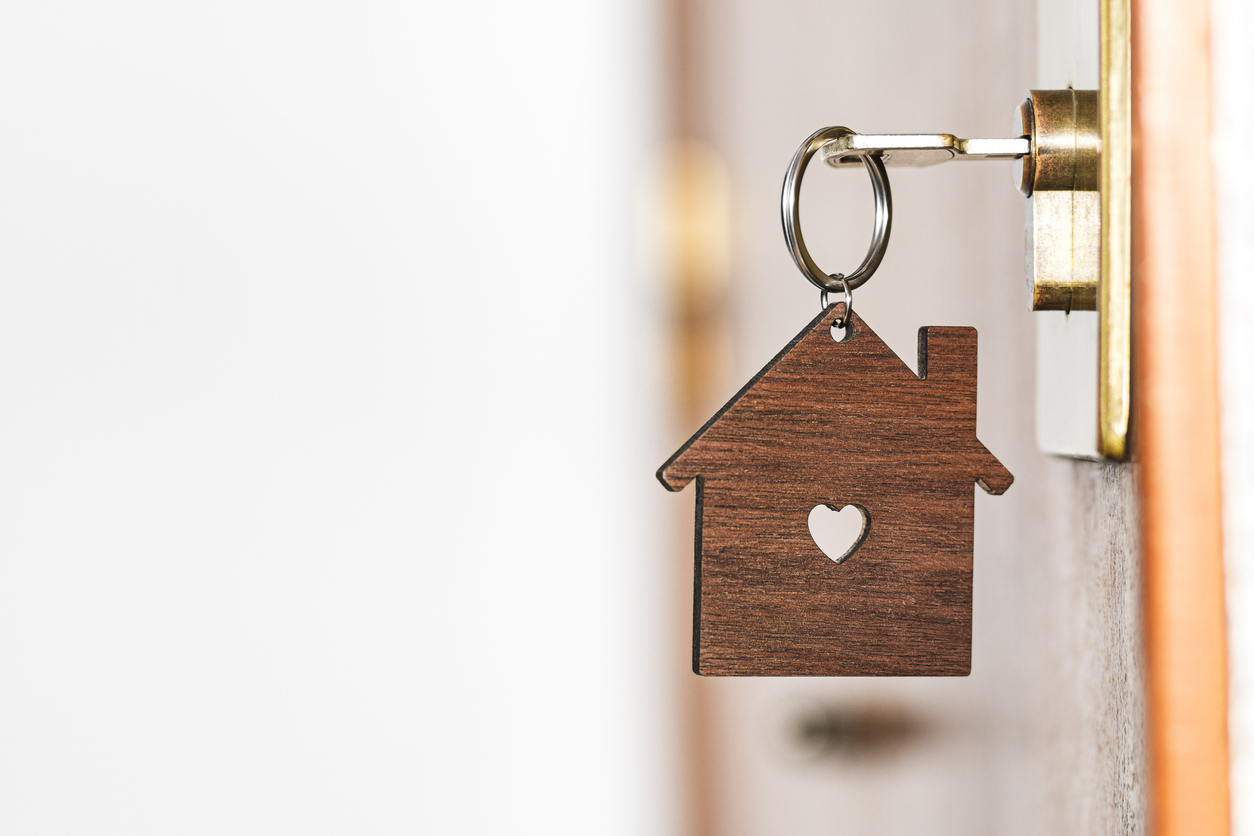Purchasing a home is a significant financial commitment, typically financed through traditional mortgage loans. However, some prospective buyers consider alternative financing methods, such as personal loans, to fund their home purchases. This article explores the feasibility, advantages, and disadvantages of using a personal loan to buy a house, providing a comprehensive analysis for potential homebuyers.
How to Use a Personal Loan to Purchase a Home
While it is technically possible to use a personal loan to buy a house, several factors make this approach uncommon and often impractical:
- Loan Amount Limitations: Personal loans generally offer lower maximum loan amounts compared to mortgages. Given that the median home sale price in the United States was $384,500 in February 2024 (National Association of REALTORS®, 2024), a personal loan would likely be insufficient to cover the full purchase price.
- Higher Interest Rates: Personal loans typically have higher interest rates than mortgages due to their unsecured nature. This results in higher monthly payments and increased overall costs over the loan term (Experian, 2019).
- Shorter Repayment Terms: The shorter repayment periods associated with personal loans lead to higher monthly payments, which may not be manageable for many borrowers when compared to the extended terms of traditional mortgages.
Understanding Personal Loans
A personal loan is an unsecured loan provided by financial institutions, allowing borrowers to use the funds for various purposes, including debt consolidation, home improvements, or major purchases. Unlike mortgages, personal loans do not require collateral, resulting in higher interest rates due to the increased risk to lenders. Personal loan amounts typically range from $1,000 to $50,000, with repayment terms spanning two to seven years.
Potential Scenarios for Using a Personal Loan in Home Buying
Despite the challenges, there are specific scenarios where a personal loan might be considered in the home-buying process:
- Purchasing Lower-Cost Properties: For buyers interested in purchasing lower-cost properties, such as mobile homes or fixer-uppers priced within the personal loan limits, this financing option might be viable. However, it’s essential to consider the condition of the property and potential additional costs for repairs or improvements (Experian, 2019).
- Supplementing Down Payments: Some buyers may consider using a personal loan to supplement their down payment. However, many mortgage lenders frown upon this practice, as it increases the borrower’s debt-to-income ratio and may indicate financial instability. Learn how to get a first time home buyer loan with zero down payment.
Advantages of Using a Personal Loan
- Quick Approval Process: Personal loans often have a faster approval process compared to mortgages, providing quicker access to funds.
- No Collateral Required: As unsecured loans, personal loans do not require collateral, reducing the risk of asset forfeiture in case of default.
Disadvantages of Using a Personal Loan
- Higher Interest Rates: The unsecured nature of personal loans leads to higher interest rates, increasing the overall cost of borrowing.
- Lower Loan Amounts: The limited loan amounts may not suffice for purchasing standard homes, necessitating additional financing sources.
- Impact on Credit Score: Applying for a personal loan results in a hard inquiry on your credit report, which can temporarily lower your credit score. Additionally, taking on new debt increases your debt-to-income ratio, potentially affecting future credit applications (Experian, 2019). Learn how to get a personal loan with no credit check.
Alternative Financing Options
For prospective homebuyers, several alternative financing options are more suitable than personal loans:
- Traditional Mortgages: Conventional loans offer competitive interest rates and longer repayment terms, making them ideal for standard home purchases.
- FHA Loans: Backed by the Federal Housing Administration, these FHA home loans cater to borrowers with lower credit scores and smaller down payments, providing more accessible homeownership opportunities (NerdWallet, 2023).
- VA Loans: Available to eligible veterans and active-duty service members, VA loans often require no down payment and offer favorable terms.
- USDA Loans: For rural property purchases, USDA loans provide low-interest rates and zero down payment options for eligible buyers.
While using a personal loan to purchase a home is technically possible, it is generally not advisable due to higher interest rates, lower loan amounts, and shorter repayment terms. Prospective homebuyers should explore traditional financing options, such as mortgages, FHA loans, or VA loans, which are specifically designed to facilitate home purchases and offer more favorable terms. Consulting with a financial advisor or mortgage professional can provide personalized guidance tailored to individual financial situations.
How to Use Personal Loan to Buy a Second Home
Using a personal loan to buy a second home can be an unconventional but sometimes viable financing option, especially when a traditional mortgage is challenging to secure or doesn’t fit your plans. Personal loans, which are generally unsecured, offer flexibility since they can be used for any purpose, including purchasing a second property. However, understanding the costs, benefits, and best practices can help you determine if this approach is right for your financial situation.
Steps to Using a Personal Loan for a Second Home Purchase
- Determine How Much You Need to BorrowStart by calculating the cost of the second home and how much of that cost you’ll need to finance. Personal loans usually offer smaller amounts than mortgages, typically ranging from $1,000 to $50,000 or more, depending on your creditworthiness. For a down payment, covering repairs, or purchasing a lower-cost property, a personal loan might suffice.
- Evaluate Your Financial StandingBefore applying for a personal loan, assess your financial situation, credit score, and debt-to-income (DTI) ratio. Lenders use these factors to determine your loan approval and interest rate. Generally, a higher credit score and lower DTI ratio improve your chances of securing a loan with favorable terms, potentially lowering your monthly payments.
- Shop for the Best Loan TermsSince interest rates for personal loans are often higher than mortgage rates, it’s essential to shop around. Compare terms from different lenders, such as banks, credit unions, and online lenders, to find the best interest rates and loan terms. Additionally, look for options with low or no origination fees to minimize upfront costs.
- Understand the Costs of Using a Personal LoanPersonal loans typically have higher interest rates and shorter terms than traditional mortgages, meaning you may face higher monthly payments over a shorter period. For instance, where a mortgage might have a 30-year term, personal loans generally need to be repaid within two to seven years. Higher payments can impact your budget, so ensure you’re financially prepared for the commitment.
- Consider Tax ImplicationsUnlike mortgage interest, interest on personal loans isn’t tax-deductible. This means you won’t benefit from the tax breaks that traditional home loan borrowers receive. If this is an important factor for you, speak with a financial advisor or tax professional about the potential impact.
- Develop a Repayment StrategyPersonal loans require prompt repayment, so it’s essential to have a plan. Since you’re using the loan for a second property, you might consider renting out the home to generate extra income, which could offset monthly loan payments. Alternatively, if you plan to resell the property quickly, have a clear timeline and strategy to repay the loan without financial strain.
When Is a Personal Loan Appropriate for Buying a Second Home?
Using a personal loan to buy a second home might make sense if you’re purchasing a lower-cost property, such as a small vacation home or rental. It can also be practical if you need a down payment or bridge financing for a mortgage and have a strong credit score to qualify for competitive rates.
In summary, using a personal loan for a second home can be a helpful tool if you’re financially prepared and aware of the costs involved. Careful planning and budgeting can ensure the decision supports your long-term financial goals.
References
Experian. (2019, May 17). Can You Buy a House With a Personal Loan? Retrieved from
RefiGuide (October, 23, 2024) Can I use a HELOC to buy a home?
NerdWallet. (2023, March 7). A Guide to First-Time Home Buyer Loans and Programs. Retrieved from



